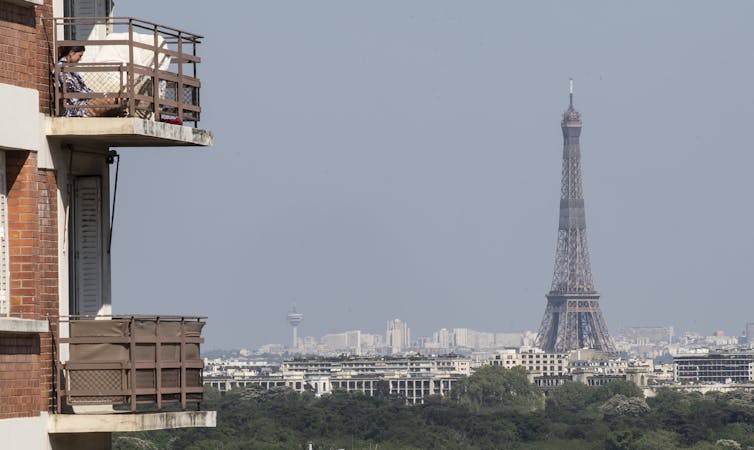News
COVID-19 lockdowns improved air quality in some cities, shedding light on how to curb pollution

To fight the spread of COVID-19, many countries imposed drastic measures that curtailed economic activity. Schools and shops closed, air travel was banned and some cities saw full lockdowns.
While these measures have caused economic hardship, our study shows that they have also dramatically improved air quality. Air pollution in urban areas declined by up to 45 per cent during lockdown, with air quality improvements persisting even after lockdown measures were lifted.
Drawing on our expertise in environmental economics and economic policy, the novel findings in this study highlight the potential for smart environmental policies to build back better by focusing on a sustainable economy.
Unequal environmental effects of lockdowns
Air pollution is a major threat to human health. It is directly related to economic activities such as transportation, power generation, industry, agriculture and domestic energy use for heating and cooking.
While most lockdowns have directly and substantially reduced transportation and industrial activity, the impact of lockdowns on agriculture, domestic energy use and power generation are often indirect and more complex.
The main source of air pollution varies across regions and is key to understanding the different environmental impacts of lockdowns across the world. While transportation and industrial activities are the main sources of pollution in urban areas of developed countries, including North America and Europe, residential energy use, agriculture and power generation are among the dominant sources of air pollution in many urban areas of Asia, South America and Africa.

Our study showed that, while most areas experienced a reduction in air pollution in response to lockdown measures, other areas saw only small improvements or even a deterioration in air quality. Those areas experiencing air quality improvements had industry or transportation as the main pollution source. Areas with no changes or air quality deterioration were often the same regions where the dominant pollution sources include agriculture, residential biomass burning or power generation, including Greece, Japan and Colombia.
These findings highlight the complexity of the relationship between the economy and the environment. The conventional wisdom is that economic activity is bad for the environment. While we do uncover and confirm this negative relationship, we also find areas where the environment is resilient to economic activity.
Building back better: A sustainable economy
Previous research on economic development shows that the composition of economies changes during the process of economic growth, often from agricultural to industrial and then to service dominated economies. The environmental impact of economic development can therefore be positive when the shift to cleaner production overcompensates the environmental damage from increased production.
Our results on the global impact of COVID-19 lockdowns on air quality suggest that such relationships may also exist in the short-term, when people respond to COVID restrictions by switching to other more highly polluting activities, such as increased pollution from heating, that are less affected by lockdowns.
Read more: How to build a better Canada after COVID-19: Launch a fossil-free future
Looking forward, our results suggest that policies to improve air quality have to take these diverse responses to regulation into account. Regulating only some activities can lead to worse environmental outcomes if economic activity shifts to more polluting actions.
A better policy response, confirmed by our results, should involve incentives that shift economies towards cleaner production and consumption of goods and services. Market-based policies such as cap-and-trade systems or taxes on polluting activities do exactly this.
By creating a cost to pollution through taxes or quota prices, these policies incentivize innovation and investment in green technologies. Our findings, in tandem with the broad lessons from the experience of carbon taxes and cap-and-trade systems to reduce greenhouse gas emissions, can be used to inform smart environmental policy design.
Although COVID-19 itself, and the associated containment measures, have had tragic consequences for societies, it also serves as an unprecedented natural experiment that helps us to better understand the relationship between economic activity and the environment. Our study provides crucial lessons for building back better, especially when considering a sustainable economy in a post-COVID world.
Frederik Noack, Assistant Professor, environmental economics, University of British Columbia; Dominic Rohner, Professor of Economics, Université de Lausanne, and Raahil Madhok, PhD Candidate, Food & Resource Economics Group, University of British Columbia
This article is republished from The Conversation under a Creative Commons license. Read the original article.





















